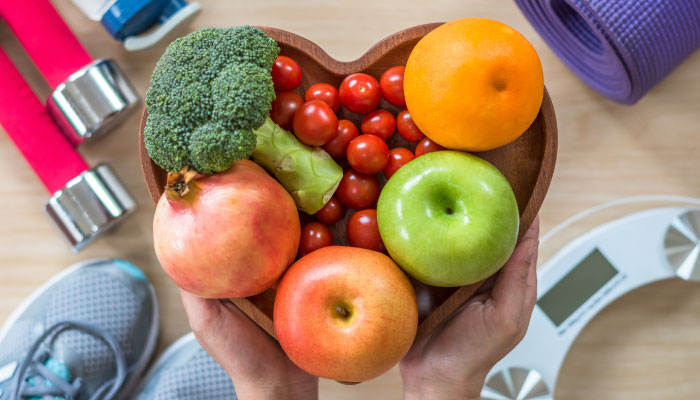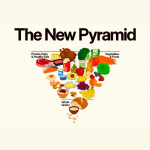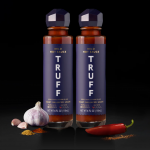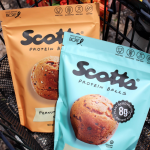Wellness, Plant-Based Products Fall in Q2 Amid Economic Uncertainty

As inflation puts more pressure on consumers’ wallets, shoppers increasingly shied away from new trends and returned to more affordable and reliable habits in Q2 2022, according to a report by research platform evergi.
Although Americans continue to be interested in athleticism, dieting and health, the overall wellness market has shrunk amid economic uncertainty, according to the report, titled “Navigating Wellness: Consumers Curate Health and Equilibrium Amid Stressors.”
Breaking consumers into unique demographics, evergi said around 8% of shoppers could now be called “Trendy Enthusiasts” – considered early adopter wellness gurus that tend to be high income millennials – down from 12% in Q3 2021. Meanwhile, the share of “Detached Traditionalists” – typically lower income, older consumers who rarely change their shopping habits – increased from 16% to 20%.
But it’s shoppers in the middle of the spectrum, like flexitarians who embraced the plant-based foods trend several years ago, that are now cutting back and leading a shift back towards meat and animal products. While many of those shoppers still believe plant-based products are healthier, Gomez said they’re nevertheless “still making different decisions” due to economic pressures.
For other shoppers, however, the health halo around plant-based has faded, while sleep and energy have emerged as wellness priorities.
“Those newer consumers on the edges are softening, which indicates that the trend may have peaked essentially,” Gomez said.
Social interest in plant-based creamers saw the biggest dropoff in Q2, dropping 25%, followed by plant-based fish alternatives and sausages which both declined by 17% each. Other plant-based categories fared poorly as well, with declines reported in yogurt (-9%), cheese (-8%), meat and burgers (-7%), chicken alternatives (-6%) and ice cream (-3%). Only bacon (+1%) and frozen meals or bowls (+5%) saw interest rise during the quarter.
The report comes as high valuation alt-meat brands like Beyond Meat have struggled in recent months with consumers, including Gen Z teenagers, signaling a lack of interest in the category. Pilot partnerships with mainstream fast food chains have only led to some plant-based alternatives becoming permanent menu items. The report noted that the number of consumers identifying as vegetarian or vegan has also declined in recent months with “plant-forward” dieters now accounting for around 10% of American consumers, down from over 15% in Q3 2021.
Although the dropoff may reflect waning interest for plant-based products from the general population, it’s not all doom and gloom. The “Trendy Enthusiast” demographic continues to embrace the trend, as plant-based meat and burgers (+6%), bacon (+12%), sausages and chicken (both +19%) and cheese (+31%) all saw sharp interest increase in the quarter.
“We’re not seeing new consumers coming in and driving future growth, we’re seeing some contraction in there but it’s not apocalyptic,” Gomez said. “There’s still some solidifying behaviors amongst the most loyal who are looking at this as a trend for them that is not going away anytime soon.”
But it’s not just plant-based products getting squeezed by a return to traditional diets. Supplements such as Vitamin, B-12, Vitamin D, fish oil and calcium, as well as ingredients like turmeric and ginger, all reported incremental increases in Q2.
The growth in well-known supplements is accompanied by a decrease in concern over the pandemic as just 12% of consumers reported COVID-19 as a top source of stress, down from 21% in Q4 2021. Around 52% said they are now living their lives with little COVID precautions – up by 5% from Q1.
“People are becoming a lot less concerned with COVID, that shouldn’t be any big surprise in the environment that we’re living in right now,” she said. “We know COVID is still there, we know it’s very prevalent, we know that the risk of getting it at some point is still relatively high, but consumers are not willing to sacrifice their daily activities or their life for it. So, there’s still this desire to include some level of support for their holistic wellbeing and support for their immunity and their bodies with cost effective and basic ingredients that can help give them that extra push.”
One health trend that is continuing to gain momentum is the shift away from alcoholic beverages. Over 56.5% of survey respondents said they’re consuming less alcohol today than in the past, and 41.8% said they wanted more choices for non-alcoholic alternatives. Fewer people today are using alcohol to socialize (53% said rarely or never) or to relax at night (55.9% rarely or never), while a majority of respondents said they’re cutting back on alcohol in order to be healthier.
Non-alcoholic RTD cocktails were up 7.4% in Q2 and non-alcoholic beer increased 2.7%, while consumers are also filling the alcohol void with other categories like enhanced water, cold brew coffee and alkaline water.
“While there’s a significant amount of people who are looking to completely stop consuming alcohol altogether and embody more of that Cali Sober mentality, particularly amongst Gen Z consumers, we’re seeing more millennials and Gen X consumers that are wanting to alternate and be able to have high quality non-alcoholic alternatives,” Gomez said. “They want to be able to use those when they want to, but they don’t need to swear off alcohol forever.”

















